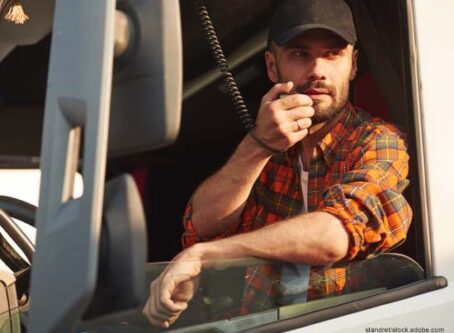OOIDA-led coalition asks rail advocates not to derail trucking industry
Several members of Congress, including Rep. Chuy Garcia, D-Ill., recently wrote to Transportation Secretary Pete Buttigieg to inform him about commuter rail operators’ difficulties in securing liability insurance.
Specifically, the lawmakers were calling attention to the FAST Act’s adjustment to the passenger rail liability cap for public and private passenger rail operators from $294 million to nearly $323 million.
“While commuter railroads carry liability insurance to cover unlikely catastrophic incidents, the law unintentionally forces operators to navigate shrinking coverage options and associated skyrocketing premiums,” reads the letter from Sens. Tammy Duckworth, D-Ill.; and Mike Braun, R-Ind.; Reps. Bradley Schneider, D-Ill.; Marie Newman, D-Ill.; and Garcia. “This lack of opportunity and competition represents a broken system and often forces operators into partnerships with a decreasing number of international insurers at inflated costs.”
On Thursday, April 22, a coalition led by the Owner-Operator Independent Drivers Association sent a letter to those lawmakers urging them not to put small trucking companies in the same unenviable position.
Ironically, Garcia is the leading force behind the Insurance Act, HR2687, which would increase the minimum insurance requirement for motor carriers. Although the specifics of Garcia’s current bill still haven’t been released, the 2019 version of the bill called for the current minimum insurance of $750,000 to increase to nearly $4.925 million – an increase of more than 550%. Garcia’s amendment added to last year’s highway bill, HR2, called for a 167% increase to $2 million.
Coalition letter
The OOIDA-led coalition, which includes dozens of national and state organizations in the trucking, agricultural, construction, manufacturing, towing, and materials industries, said that either increase would be devastating.
“Like commuter railroads, motor carriers are required to carry liability insurance to cover unlikely catastrophic incidents,” the coalition wrote. “Motor carriers currently face many of the same challenges you raised in your letter when navigating the commercial auto liability insurance market. Increasing their minimum insurance requirements would only exacerbate these problems.”
The coalition noted that, even without federal interference, some insurance providers have already left the commercial auto liability market, and the remaining providers have continued to raise premiums each year.
“As a result, small-business truckers and other businesses have seen their premiums regularly increase as they maintain impeccable safety records,” the coalition wrote. “With premium costs steadily rising without congressional involvement, mandating higher levels of minimum coverage for all motor carriers would compound these challenges.”
For the lawmakers concerned about the effects the liability increase is having on commuter rail operators, the coalition said that Garcia’s proposals would be even more devastating to motor carriers and the industries that rely on trucking companies to haul their goods.
“The effect of proposed increases for motor carriers would likely be magnitudes greater than what commuter railroads are experiencing,” the coalition wrote. “Commuter railroads face an increase of just under 10% to their liability cap, whereas HR2 would have increased motor carriers’ liability responsibilities by over 160%, and previous iterations of standalone legislation … would have mandated an unimaginable 550% increase.
“It is extremely difficult for us to determine if there would be enough insurance capacity to even handle these increases or how premiums would rise as a result, but we are certain the impact would be devastating for our members.”
Coalition aims to keep measure out of highway bill
The coalition asked the lawmakers, who are aware of the problems a mandated increase have caused to commuter rail, to avoid forcing those same problems on motor carriers.
“It is clear in your letter to Secretary Buttigieg that you have serious and reasonable concerns for commuter railroads, who are struggling to meet federal insurance requirements,” the coalition wrote. “As Congress considered increasing insurance requirements for motor carriers, we hope you’ll avoid imposing even more difficult conditions on businesses in the trucking, agricultural, construction, materials, manufacturing, and towing industries.
“Not only does federal data indicate such an increase is unnecessary, it will certainly destroy countless small businesses and blue-collar jobs. We hope you’ll agree such a policy has no place in the next highway bill or infrastructure package.”
The coalition is comprised of 61 organizations, including OOIDA, the Agricultural Retailers Association, American Concrete Pavement Association, American Dairy Coalition, National Asphalt Pavement Association, National Cattlemen’s Beef Association, and the United Fresh Produce Association. A full list of coalition organizations can be found here. LL









